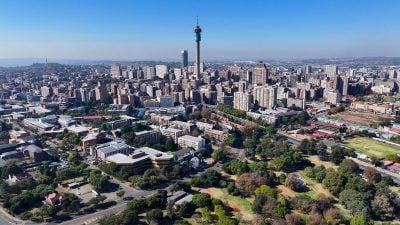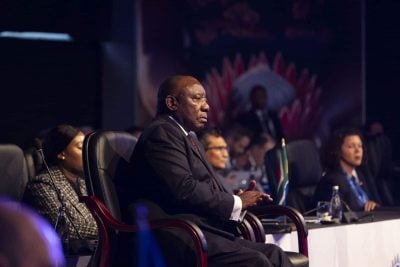Renewable energy offers solutions to Nigeria’s chronic energy shortages and big opportunities for investment. Dianna Games reports
If every single Nigerian today lit a candle at the same time, we would generate as much power as the entire national grid is delivering,” renewable energy entrepreneur Wiebe Boer told a conference recently.
The CEO of All on Energy has flagged the enormous opportunities in Nigeria’s renewable energy space, given the fact that the country only has 12,000 MW of installed capacity and of that, just 3,000 MW to 4,000 MW gets to end users in a country of 200m people. He maintains that 120m Nigerians are completely off the grid or receive just four hours of grid power a day. There are about 60m generators keeping homes, businesses, schools and government offices running. Renewable energy is a no-brainer in this situation.
Nigerians already spend an estimated $20bn a year on alternative energy, including generators, candles, batteries, kerosene and charcoal. This is disposable income that could be better served by directing it to clean and reliable energy sources such as solar home kits and connections to mini-grids, Boer says.
The dysfunction in grid power is a legacy issue of years of corruption, neglect, mismanagement and maintenance issues. Generation has seldom even reached 6,000 MW because of run-down infrastructure. There are 140 turbines that should generate power from 25 power plants, but on a good day, only half of them work.
Former power minister Babatunde Fashola says long-running contract disputes have been a key constraint in getting the sector working. In some cases, he said, commissioned power projects have not progressed beyond the sod-turning ceremony.
The 2013 privatisation of generating and distribution companies from the Power Holding Company of Nigeria was viewed as way to rejuvenate the power sector and attract new investment. However, this dream has been deferred. Most of the assets were bought by Nigerians for hefty prices, which masked the enormous and costly legacy issues they were taking on. The new companies have been beset by problems including the limited quality of the assets, funding issues, inherited bad debts, and arguments about tariffs.
In the second half of 2019, the entire grid crashed eight times. By 2019 many of the privatised companies were mired in debt and heading to court in disputes with the government over money.
Successive governments have turned to global multinationals to assist. In 2019, President Muhammadu Buhari signed a six-year power deal with Germany’s Siemens to produce at least 25,000 MW of electricity by 2025. Back in 2009, GE signed a country-to-company (C2C) agreement with the government to support key sectors, including power, with financing, design and building of infrastructure and capacity. The company is well integrated into many projects in the power sector.
But decentralisation of power is regarded by many as the best way forward, as it will enable power to reach all corners of the country and the 60% of people who currently have no grid access. Investors are already looking at the enormous potential of this unserved market.
Commercial viability
Renewable energy forms part of the national energy master plan and the Rural Electrification Agency of Nigeria (REA) was set up by government to work with the World Bank and others to move the process forward. Damilola Ogunbiyi, managing director and CEO, says they have already identified hundreds of potential sites for investment and demonstrated the potential for commercial viability.
REA says that Nigerians currently spend about $14bn annually on generators while developing off-grid alternatives could create a $10bn market opportunity for mini grids and solar home systems.
There is a rapid take-up of solar options. Banks and petrol stations are starting to run their branches on solar power and energy providers are offering solar solutions to business customers, which will give traders, currently reliant on expensive generators, cleaner working environments and increased profit margins.
Want to continue reading? Subscribe today.
You've read all your free articles for this month! Subscribe now to enjoy full access to our content.
Digital Monthly
£8.00 / month
Receive full unlimited access to our articles, opinions, podcasts and more.
Digital Yearly
£70.00 / year
Our best value offer - save £26 and gain access to all of our digital content for an entire year!
 Sign in with Google
Sign in with Google 


